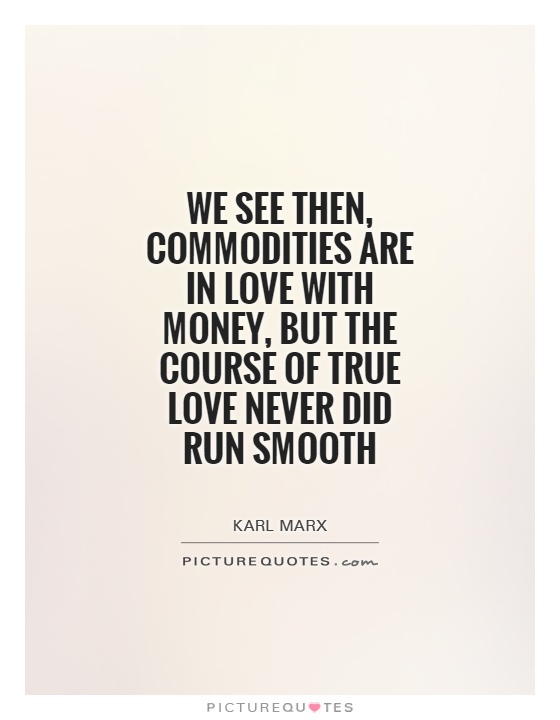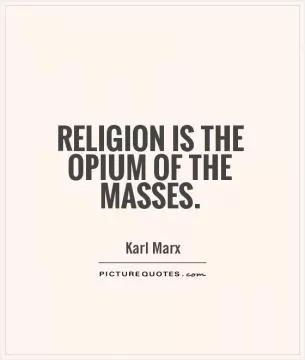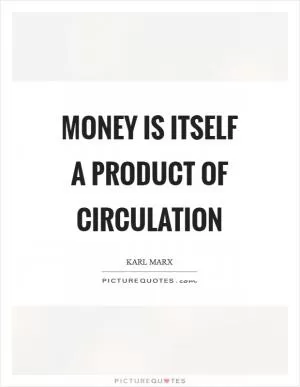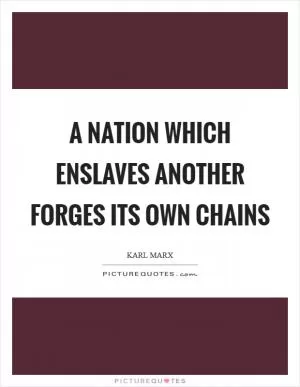We see then, commodities are in love with money, but the course of true love never did run smooth

We see then, commodities are in love with money, but the course of true love never did run smooth
Karl Marx, a renowned philosopher and economist, delved deep into the relationship between commodities and money in his seminal work, "Capital." In this work, Marx famously stated, "We see then, commodities are in love with money, but the course of true love never did run smooth." This statement encapsulates Marx's critique of the capitalist system and the inherent contradictions within it.According to Marx, commodities are objects that are produced for exchange in the market. In a capitalist society, commodities are produced not for their use value, but for their exchange value. This means that the value of a commodity is determined by the amount of labor that goes into producing it. However, in the process of exchange, commodities are transformed into money, which becomes the universal equivalent for all other commodities.
Marx argues that this transformation of commodities into money leads to a fetishization of commodities, where they are seen as having a life of their own, independent of the labor that went into producing them. This fetishization of commodities is what Marx refers to as the "commodity fetishism," where the social relations between people are obscured by the relations between things.












 Friendship Quotes
Friendship Quotes Love Quotes
Love Quotes Life Quotes
Life Quotes Funny Quotes
Funny Quotes Motivational Quotes
Motivational Quotes Inspirational Quotes
Inspirational Quotes